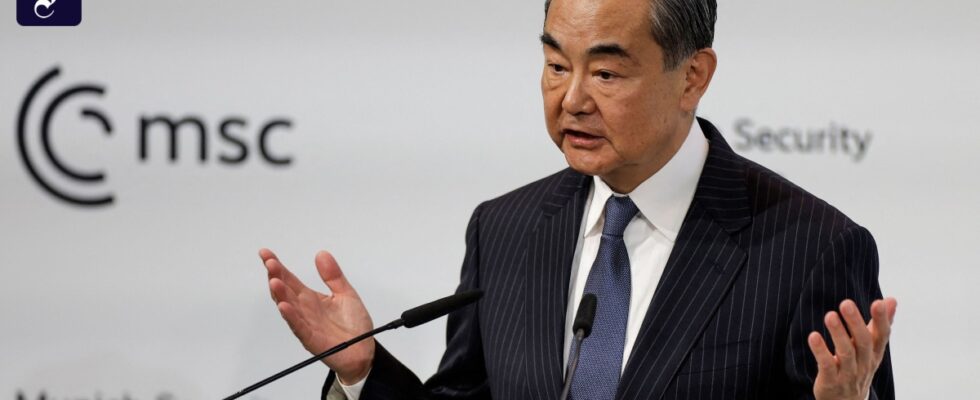Et must have been a conversation in a frosty atmosphere. Even after the meeting between American Secretary of State Antony Blinken and China’s top foreign policy leader Wang Yi during the Munich Security Conference, the balloon affair continued to strain relations between the two countries. The tone remains harsh – and there was no talk of a new date for Blinken’s trip to Beijing, which he had canceled after a suspected spy balloon had penetrated American airspace. Rather, there is new anger related to Beijing’s support for Moscow.
On Sunday, a day after the meeting, Blinken reiterated that he had made it clear to President Xi Jinping’s chief foreign policy adviser that Russia’s support in the Ukraine war would have “serious consequences for our relations”.
“There are different types of deadly support that they are at least considering, including guns,” he told NBC. He added that Washington would announce more details soon. The State Department spokesman said earlier that Blinken had warned Wang Yi that both “material support” and help to systematically circumvent economic sanctions would have consequences.
Allegations of an anti-Chinese campaign
Last spring, Washington warned Beijing against providing military support to Moscow. For some time it was said that no activities were observed on the Chinese side. This should mean that the warning has had an effect.
But then there were reports that some Chinese companies were suspected of undermining the sanctions. For Washington, all of this reveals that its actions against Russia are also about the long-term conflict with China.

Antony Blinken on Saturday at the Munich Security Conference
:
Image: Reuters
Before the meeting with Blinken, Wang Yi emphasized in his speech at the security conference with a view to the Ukraine war that Beijing is in favor of negotiations. Without going into details, he announced a position paper from his government on how to find a peaceful solution.
After Wang Yi’s performance at the Bayerischer Hof, doubts arose as to whether Blinken would ever meet. He had accused Washington of running a campaign against his country. He called the launch of the balloon over the American Atlantic coast “hysterical and absurd”. It was a civil aircraft. America launched fighter planes to shoot it down. This is an abuse of military force. America is not strong, on the contrary: Washington wanted to distract from internal political conflicts.
Channels for crisis communication are missing
After the meeting, which lasted about an hour, Blinken reacted through his spokesman: He had warned Wang Yi that such an “irresponsible act should never happen again”. He said Washington would not accept any violation of its sovereignty and disclosed the spy balloon program that Beijing used to infiltrate the airspace of 40 countries on five continents.
But Blinken also emphasized what President Joe Biden had previously reiterated: the United States wanted “no conflict” with China and also no “new Cold War”. The Foreign Minister also underlined the importance of diplomatic dialogue and open communication channels “at all times”.
One of the goals of Blinken’s Beijing trip, which was supposed to have taken place in early February, was to establish channels for crisis communication between Washington and Beijing.
The American government was particularly concerned with the conflict in the Taiwan Strait, which poses a greater risk than espionage activities. Such channels are essential to avoid communication breakdowns and crises, Blinken said last summer after Beijing cut them over Nancy Pelosi’s visit to Taipei and an unprecedented military maneuver off the coast of Taiwan.
But the balloon affair has complicated things: A statement from China’s Foreign Ministry said the United States must repair the damage done to the two countries’ relationship.
